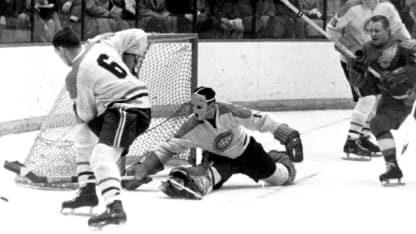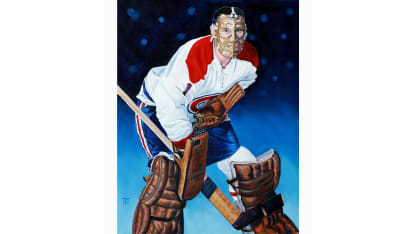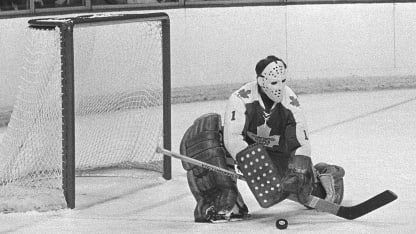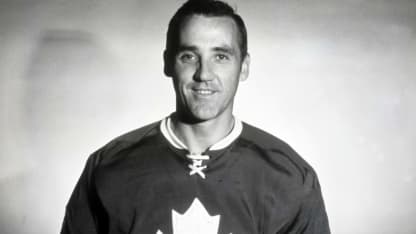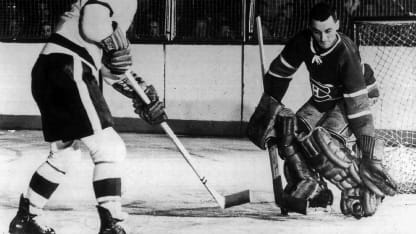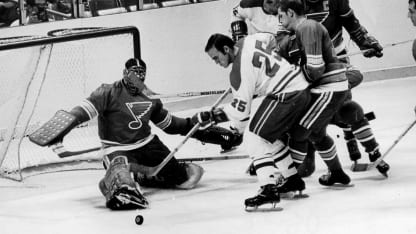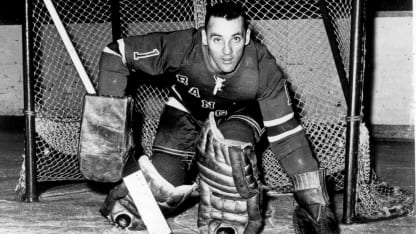"I told Toe I would only return if I could wear the mask, so there was no choice," said Plante, who started wearing the mask during practices following an operation to deal with his sinusitis. "He never wanted me to wear [it] because he thought it would make me too complacent."
Indeed, Blake considered the mask a sign of mental weakness, and even cowardice, according to Carl Lavigne, a hockey historian who is the Canadiens manager of research. Lavigne said that Blake was convinced it would impair Plante's vision and his ability to react quickly.
The coach clung to his theories, but in the laboratory of competitive play, Plante went out and proved him utterly wrong. Back in the Garden net against the Rangers, the bemasked Plante led the Canadiens to victory, and soon helped them win eight straight games. Blake kept trying to revisit the issue, but the conversations were brief and one-sided, and why wouldn't they be, with the Canadiens and their masked man riding a hot streak?
"Plante was a stubborn guy," Lavigne said. "Toe Blake wasn't going to talk him out of it. Plante told him, 'If you don't let me play with the mask, I'm not playing,' and that was the end of it."
The Canadiens finished the season as Stanley Cup champions for a record fifth consecutive season, and lest anyone thought that Plante's performance had dropped off with the mask, he also won his fifth straight Vezina Trophy that season.
The oldest of 11 children, Plante was born on Jan. 17, 1929 in Shawinigan Falls, not far from the banks of the Saint-Maurice River in Quebec, and played shinny with whatever equipment he could get, including a stick his father carved from the limb of a tree.
"I've handled a lot of goal sticks since then, but I'll never forget the thrill of that first one," Plante said later.
